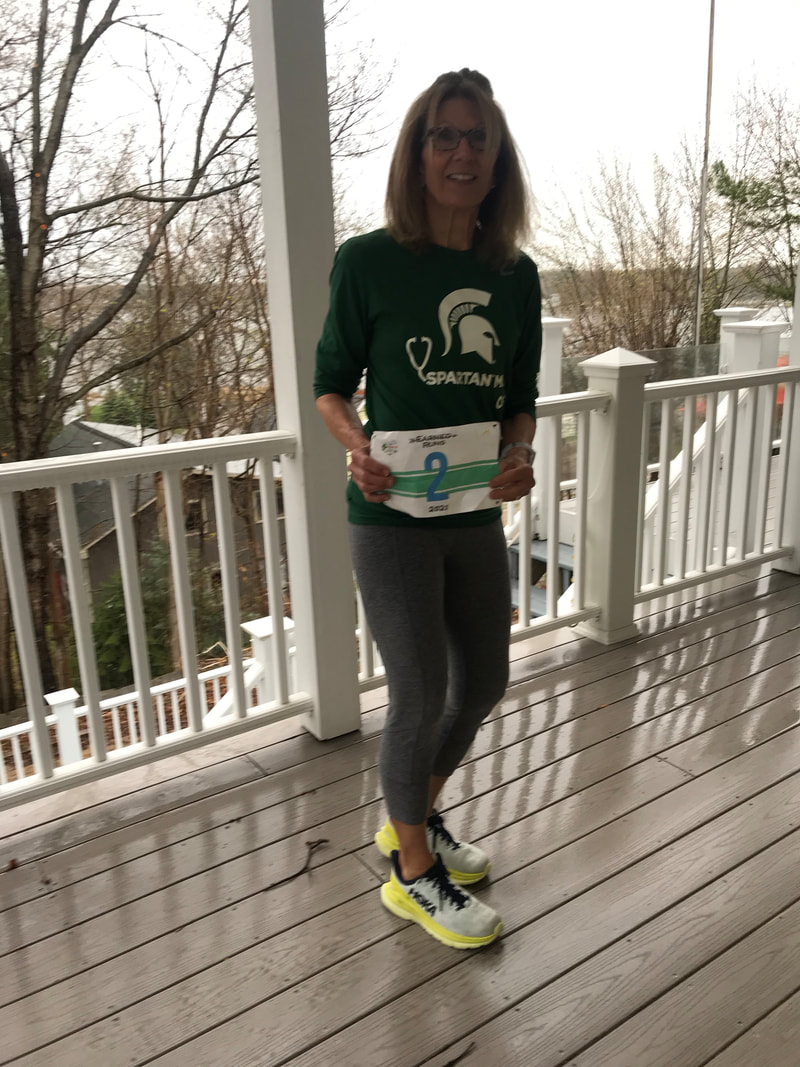BLOG
|
|
WHAT TO EAT DAYS BEFORE, AND THE MORNING OF AND DURING THE RACE The article “How to Fuel for a Half Marathon” by Pamela Nisevich Bede for RunnersWorld.com, discusses carbohydrate loading and pre-race and in-race fueling. Since this and next week contain the longest runs/walks of the 18-week plans, this is the time to be testing what works best. Some of you may be competing your half marathon this or next weekend! The piece may provide helpful information for first-timers, and also those who regret not paying attention to nutrition in advance of previous longer distances races.
First, Nisevich Bede addresses the issue of what to eat days before you anticipate “being on the road for more than 90 minutes”. Then, breakfast before an early race. Finally, fueling during the race. She does nice work explaining all three topics in this updated 2019 piece. Give it a look if you want help or check it to determine if your planning is on track with expert recommendations. Remember, just as it’s not a good idea to introduce something new during the race, dietary alterations that are planned for the days leading up to race day should also be ‘practiced’. These next training weeks can be used for nutrition trials. An embedded link to an article by Dimity McDowell and Runner’s World’s Editors suggests a test-run the week before the longest training run/walk (the article advises 6 weeks before the race, but this may be for marathon plans). There are specifics on what to eat for each meal. EARNED RUNS NOTES: Among other recommendations, Nisevich Bede suggests eating a larger mid-day lunch, making it your main meal, and a smaller dinner the day before a race. If accustomed to a pre-sleep high protein snack, you might easily continue with this routine especially if the protein is casein (dairy), as long as the fat content isn’t high. Calories don’t need to be increased; there’s the risk of feeling sluggish after a bigger than normal intake the day before. Lean meat is a preferred protein source. Pasta is often recommended. That shouldn’t be translated as including all Italian foods. Remember that pizza heavy with cheeses and high-fat meats (sausage, pepperoni) will represent a big load of fat. Runners should keep in mind that TIME IS WARPED on race day. Regardless of how nearby the course is to where you are staying, you should factor in time and activity involved in travel to the parking or assembly area, shuttle to the start, and standing in the chute. The bigger the race the more time and effort will be required before the start. Your typical fuel needs on a long training run day may be increased on RACE DAY. Consider the following: - Your ‘wake-up call’ may come an hour or two earlier than usual. - Travel may involve an Uber ride to a point where the streets are closed, a significant distance from the starting area, and walking is required. - Depending on your ‘wave’ and the size of the event, you may spend up to an hour after the official starting gun blast waiting in a chute. - You might spend some of that waiting time running in-place or jumping to stay loose or warm. Or before entering the chute, waiting in a line to use a portable toilet. - There may be more than a few minutes spent running with very tiny steps in a pack of runners as you make you way to the start line, where electronically your official race begins. And there’s nervous energy! It’s not a good time to overhaul pre-race and in-race fueling strategy with a few weeks to go before racing. But being aware and ready to make small adjustments might be helpful. One of the most important points made in Bede’s article is that fueling should start 30-60 minutes into the race, before you are totally depleted of glycogen. If you typically fuel 40-50 minutes into your long training runs, keep in mind that you are probably NOT on your feet 2 hours prior taking off on a training day as you might be on race day. The link to a piece on what to eat for breakfast has some helpful calculations that may help you BOOST that breakfast, especially if a long and active interval between it and the start of YOUR race is anticipated. If you’re nervous about taking in too much food pre-race, think about starting your in-race fueling earlier, at 30 minutes. A small amount then, followed by a small amount at your usual time of 40-50 minutes. Another important point made in the article is that water should be taken when ingesting concentrated fuel, like gels, to ‘dilute” it and allow absorption. This is to avoid becoming nauseated from the bolus of carbohydrate that’s being delivered to your stomach. I have been reluctant to eat and drink while competing, especially in the later stages when trying to pick up the pace to finish strong. I learned quickly that this was a very bad idea. So, starting earlier and continuing throughout the race's course with smaller amounts of fuel/water has kept me from running on empty in the second half of the race. I have been able to skip that very last water station to concentrate on performance. Best of luck to all who are racing this week; you are ready for this. RUN & MOVE HAPPY! https://www.runnersworld.com/nutrition-weight-loss/a20843248/how-to-fuel-for-a-half-marathon/ https://www.runnersworld.com/nutrition-weight-loss/a20826888/the-right-way-to-carbo-load-before-a-race/ https://www.runnersworld.com/nutrition-weight-loss/a20792789/how-do-i-fuel-for-an-early-morning-run/ https://www.livestrong.com/article/457344-pregame-meals-for-sprinters/ https://www.livestrong.com/article/485124-good-food-to-eat-before-running-a-half-marathon
0 Comments
Your comment will be posted after it is approved.
Leave a Reply. |
BRIDGE TO PHYSICAL SELF
Running, walking, and fitness activities enable us to experience our physical selves in a world mostly accessed through use of fingers on a mobile device. AuthorEARNED RUNS is edited and authored by me, runner and founder. In 1978 I began participating in 10K road races before 5Ks were common. I've been a dietitian, practiced and taught clinical pathology, and been involved with research that utilized pathology. I am fascinated with understanding the origins of disease as well as health and longevity. Archives
November 2023
CategoriesNew! Search Box
Earned Runs is now searchable! Check it out...
|


 RSS Feed
RSS Feed